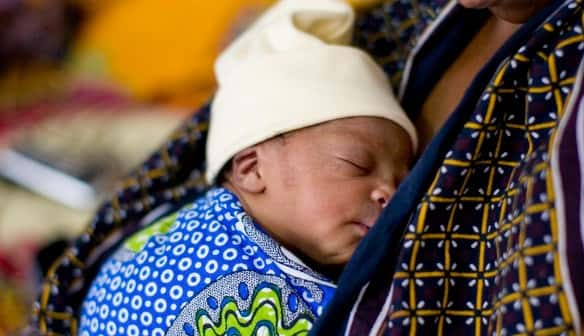Saving lives of small and sick newborns
Every year, 20 million babies are born prematurely or with low birthweight. One million of these newborns die.

Every year, 20 million babies are born prematurely or with low birthweight. One million of these newborns die.

The Saving Little Lives (SLL) program was developed to help save the lives of small and premature newborns. Developed in collaboration with the Ethiopian Ministry of Health, the program has been integrated into their strategic healthcare plans. The program includes a bundle of neonatal interventions that address the primary causes of neonatal mortality. It is implemented through simulation-based training, on-site mentorship, and ongoing quality improvement.
Due to the potential for impact and the strong implementation plan, the Saving Little Lives program received a 4.5M USD Innovation-to-Scale grant from the World Bank's Global Financing Facility. The Ethiopian Ministry of Health and the regional health bureau will contribute matching funds to support the project.
“Saving Little Lives is led by the Ministry of Health and it’s one of our highest priority programs. We believe it will improve the care of small babies across the health system and contribute to our effort to sustain and scale its impact.”
—Solomon Gebeyehu, Ministry of Health, Child Health Coordinator
Saving Little Lives is an example of Innovation- to-Scale – the process of expanding the presence and the use of innovation to maximize the impact over time. Not only does it demonstrate an impact on saving lives, but also a strong investment case and opportunity for future development in the other GFF countries.
Several Laerdal Global Health innovations are used to support the program including the skin-to-skin wrap, CarePlus, which is locally produced in five regions of Ethiopia, the feeding cup, Nifty, used to feed babies too weak to breastfeed, the newborn resuscitation simulator, NeoNatalie Live, and the newborn heart rate meter, NeoBeat, to practice ventilation based on heart rate.

The impact
Saving Little Lives is being scaled up in Ethiopia, totaling 290 hospitals in 6 regions that cover 1.2 million births every year. If implemented well, it is estimated that Saving Little Lives can help save 25,000 small babies in Ethiopia during the 3-year program.
To date, 180 clinical mentors have been trained to provide mentorship to more than 1,000 healthcare providers. Four PhD candidates from Ethiopia have been funded by the Laerdal Foundation to document the impact and learnings from the program.
The benefits of skin-to-skin care
Through a collaboration between the World Health Organization (WHO) and partners, Ethiopia has increased the adoption of Kangaroo Mother Care (KMC) from only 5% to 60-80 %. While the results were encouraging, it was also learned that many newborns died before they were stabilized and KMC was initiated. In 2021, a groundbreaking global study provided evidence that if Kangaroo Mother Care is begun immediately after birth rather than waiting until a newborn is stabilized, it is shown to reduce mortality even more and could help save an additional 150,000 lives every year.
As a result, recent WHO guidelines have been revised to include skin-to-skin care immediately after birth. The Gates Foundation is funding part of the Saving Little Lives program that will scale up immediate KMC (iKMC).